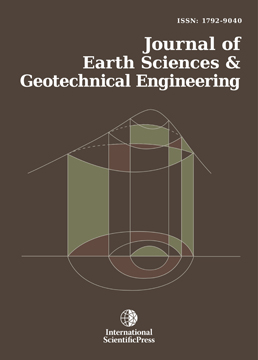Journal of Earth Sciences and Geotechnical Engineering
Dam Safety: Monitoring of Tailings Dams and Safety Reviews
-
 [ Download ]
[ Download ]
- Times downloaded: 11129
Abstract
The awareness to tailings dam safety monitoring and reviews has increased by the catastrophes resulting from failures of such dams worsened by increasing tailings waste and construction of larger dams. The losses born by the mining industry from high costs of compensations and environmental rehabilitation work have brought this matter into focus. In the present article the need for safety monitoring programs of tailings dam is highlighted and mode of failures and factors leading to them are described. Basic principles of such programs are investigated with all phenomena needing observation described and their impacts explained. As in conventional dams this work is carried out by visual inspections and use of similar methods and instruments. In similar manners in both types of damsí observation and measurements are done for measuring seepage water quantity and quality, phreatic surface level and pore pressure and total earth pressure values in addition to deformation measurements; and all are done by similar devices and methods such as weirs, piezometers, inclinometers, settlement plates and geodetic surveying. Basic differences between safety monitoring systems of the two types of dam, however, are presented in a tabular form. The continuity of safety monitoring of tailings dams is emphasized not only during the long construction phase but also after that in the abandonment and closure phase which can last indefinitely in order to watch for possible adverse effects on the environment and ecosystem due to the winds eroding and carrying of poisonous tailings contents, in addition to contaminated seepage water entering surface water streams and ground water. Justifications for using real time monitoring systems for recording and transmitting all data to the control center are presented with emphasis given on savings in both labor and time and need for the discovery of warning signs enabling raising earlier the alarm of possible failure or incident and the early taking of preventive measures. In this article it is argued that, in spite of the large investment of installing and running cost of comprehensive dam safety monitoring systems in tailings dams, such costs are justified as they form only a small percentage of the total investment in the tailings facilities projects, and may save huge costs if failure does happen. Such systems may be considered as an additional insurance against such events.
Keywords: Tailings dam, safety monitoring, environment, ecosystem, visual inspections, instrumentation, deformation, seepage, phreatic surface, pore water pressure, total earth pressure, settlement, inclinometer.
